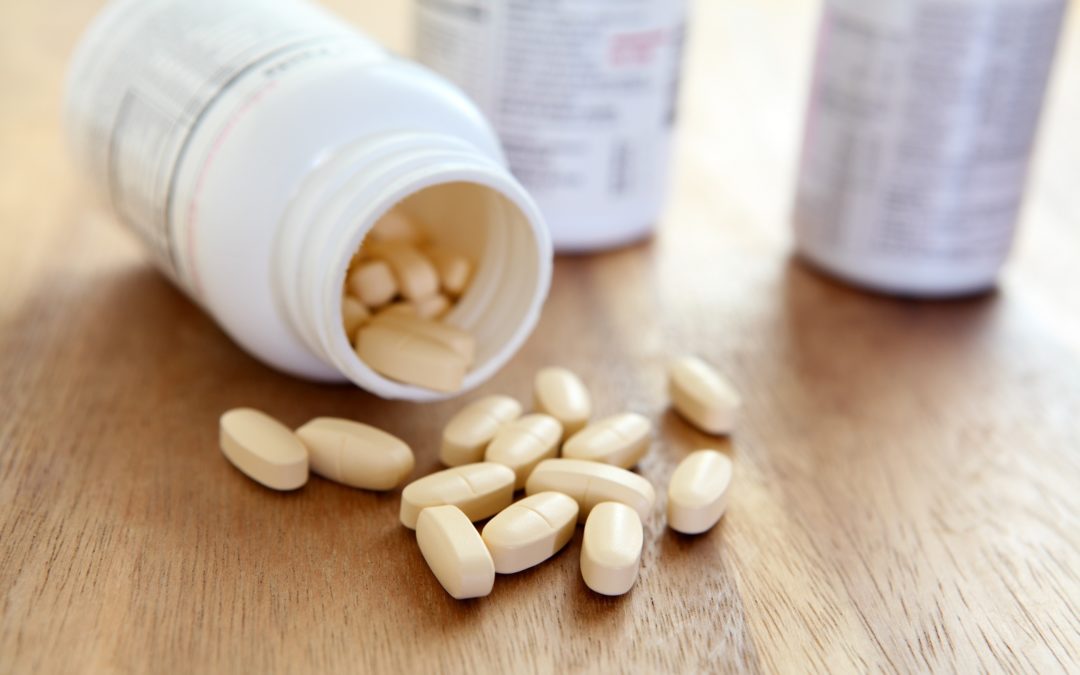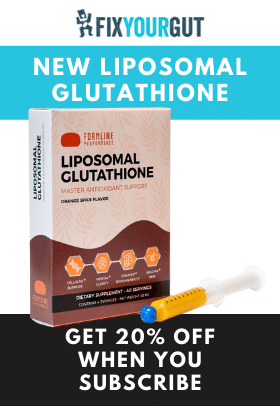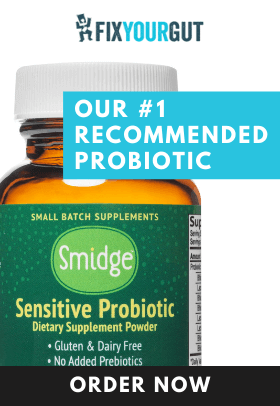The best time to take a probiotic supplement is a very complex question with multiple answers and depends individually on the person’s daily life and digestive health.
For most people, it is best to take the supplement when your stomach pH is elevated, and your MMC (migrating motor complex, your digestive system’s motility cycle) is in its later stages. I believe it is best to consume a probiotic either right before bed with a small four-ounce glass of filtered water OR when one first wakes up in the morning to best fit this criterion. You can also ingest probiotics hours after a meal for better chances of survival. If you choose to take a probiotic after a meal or if you decide to take it when you first wake up in the morning you must wait a few hours before consuming food to allow more of the microogranisms to survive.
There are some supplements that you could consume with food which may not reduce its effectiveness. For example, most strains of Lactobacillus would survive the low pH of the stomach and increased stomach acid production during a meal. Most Lactobacillus strains in our digestive system thrive in our stomach and duodenum where they thrive in harsh conditions. One strain of Lactobacillus that would not thrive as easily is Lactobacillus plantarum, which colonizes the colon. Also, most spore forming bacteria including the Bacillus and Clostridium genus’s, also survive low stomach pH. If you take a probiotic supplement that is contained in an acid resistant (enteric coated) formulation, you can take your probiotic during a meal if you so choose, but the capsule may still dissolve if you overeat or have slow gastric emptying, which would not be optimal. Many people ask me, why do most manufacturers on their probiotic label state that they recommend you take a supplement with food? Supplementing probiotics without food may cause nausea and stomach upset for some people and taking the supplement with food can help alleviate that. If taking probiotics on an empty stomach make you feel nauseous, take it with food use a probiotic or formulation that is stomach acid resistant.
Some people take different probiotic genus’s or strains that would not survive lower stomach pH (an example of a probiotic that cannot tolerate low pH is Bifdobacteria) rectally using an enema kit. In addition, people with MMC issues including SIBO (small intestinal bacterial overgrowth) might want to take a probiotic using a retention enema to prevent them from inappropriately colonizing causing more digestive issues. If you choose to use a probiotic enema, I would only use strains that would colonize the small intestine, including Bifidobacteria and Lactobacillus plantarum.
So the choices you have to when it is best to supplement a probiotic are:
- When you first wake up in the morning. If you choose to do this, you need to eat two hours after supplementing.
- Three to four hours after a meal. You need to wait two hours to eat again after ingesting the probiotic.
- Supplement probiotic before bed with a four-ounce glass of filtered water.
- Supplement acid resistant probiotic during a meal (only if supplementing a probiotic on an empty stomach makes you nauseous.)







Why does Smidge (Formally GutPro) recommend to take their probiotic with a meal?
Many are confused about probiotics and prebiotics. Thanks for sharing this !.God bless :)
hello i have seborheic dermatitis 4 years now and i understand that has some relation with flora gut…beause i had stress in the past and lack of sleep and i believe my gut flora has destroyed…so i decide to take this https://www.amazon.com/Jarrow-Formulas-Bifidus-Vegetarian-Capsules/dp/B000VMYS6Y………….whats is your opinion?
What about fermented foods? Should they be eaten alone or with other foods?
With other foods should be fine, most are fermented with lactic acid bacteria that can easily survive stomach acid to colonize.
Dear John, I have been on your site all day again.I think you are amazing! I truth you enough that I only buy what you recommend, I bought Bullet Proof shoots, liquid vitamin E, R-alppha-lipoic, moonshine Bitters, Nortic Omega 3, and on and on,my functional doctor, doesnt even try to sell me his stuff anymore, he knows I only trust you and it makes him made but it’s my body.Now please I almost bought GUTPRO OR BM today as a probiotic, but am still so confussed, help me pick. Idiopathic Gastroparresis, Hoshimotos, tested ng for hpylori and sibo and Mayo, no acid reflux anymore, dont know why, 9 hours to digest, enzyes and hcl bother me.Pelvic Floor Disorder I think that a made up disease but that what Mayo said, constipation, no gallblader,just started on bioidentical hrt.I have a small amount of colitis near my cecum that gets inflamed BAD every other period I guess since its so close to my ovaries.Prerimenopausal.Well supplemented, AIP diet/FODMAP. Please I am leaning towards BM? But am not sure.PLease help me pick, cost alot. Buy the way, your son would be so proud of you helping us sickies out here.Bless you.PS Love your supplement guide.Thank you!!!! Ava
Thank you for the kind words Ava. Both BM and Gutpro are very similar, it both should produce low amounts of any of L-lactate or histamine so they are well tolerated by many. Here is some good info for you: https://www.youtube.com/watch?v=Iq94ROB5qEs / https://fixyourgut.com/improve-your-health-for-free-use-sunlight-for-vitamin-d/ / https://fixyourgut.com/why-proper-sleep-hygeine-is-important-for-digestive-health/.
In your book, you reference that Saccharomyces boulardii is not recommended for those with histamine issues, but here it is recommended. Is this an error? Could you explain?
Thank you
My book is more updated that my blog, it really depends on how strong your histamine issues are and Th2 elevation. I have updated the blog thank you.
Can you point to a study or reference that indicates why Saccharomyces boulardii is not recommended for those with histamine issues? I have not heard this anywhere else, and searches haven’t turned up anything.
http://onlinelibrary.wiley.com/doi/10.1111/j.1439-0507.2008.01545.x/full, S. boulardii increases Th2 reactions and it doing so can sensitize the body to histamine.